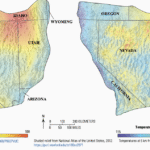Ranking and Review
Selecting the Right University
If you are considering a degree in Power Systems Engineering, choosing the right university can be a daunting task. With so many options available, it is essential to do your research and pick a university that aligns with your goals and expectations. In this article, we will rank the top 10 universities in the world for Power Systems Engineering, considering factors such as curriculum, research opportunities, faculty expertise, and facilities.
Top 10 Universities for Power Systems Engineering
#1. Massachusetts Institute of Technology (MIT), United States
MIT is globally renowned for its strong electrical engineering department, which includes a rigorous program in power systems engineering. The curriculum covers a wide range of topics, including power generation, transmission, and distribution, as well as high-voltage engineering and transmission planning. Faculty members at MIT have made significant contributions to the field, publishing numerous papers and patents. MIT also has a reputation for innovative research, which can provide valuable opportunities for students.
#2. Imperial College London, United Kingdom
Imperial College London is one of the largest and most prestigious universities in the world. Its department of electrical and electronic engineering offers a strong program in power systems engineering, which covers topics such as electrical power systems, power generation and transmission, and advanced power systems analysis. Research opportunities at Imperial College London are abundant, with multiple research groups focusing on different aspects of power systems engineering.
#3. Stanford University, United States
Stanford University is a renowned institution known for its world-class electrical engineering department, which offers a comprehensive program in power systems engineering. The curriculum covers topics such as power generation, transmission, and distribution, as well as power electronics, high-voltage engineering, and energy storage. Students at Stanford have access to cutting-edge facilities and collaborations with top companies in the industry.
#4. École Polytechnique Fédérale de Lausanne (EPFL), Switzerland
EPFL is a Swiss Federal Institute of Technology located in Lausanne, Switzerland. Its school of engineering, electrical and computer science departments offer a strong program in power systems engineering, focusing on topics such as energy systems, power electronics, and smart grids. Students at EPFL have opportunities to collaborate with industry experts and conduct research projects at leading research institutions.
#5. University of California, Berkeley, United States
UC Berkeley is one of the most prestigious universities on the West Coast of the United States. Its department of electrical engineering and computer sciences offers a comprehensive program in power systems engineering, covering topics such as energy systems, power electronics, and power transmission and distribution. Students at UC Berkeley have access to cutting-edge facilities, research opportunities, and collaborations with top industry players.
#6. Texas A&M University, United States
Texas A&M University is a public research university with a strong focus on engineering education. Its department of electrical engineering is recognized for its rigorous programs in power systems engineering, covering topics such as energy systems, power electronics, and transmission and distribution systems. Research opportunities at Texas A&M are abundant, with multiple research groups working on different aspects of power systems engineering.
#7. University of Oxford, United Kingdom
The University of Oxford is one of the world’s oldest and most renowned institutions, offering a Master’s program in power systems engineering through its department of engineering science. The program covers topics such as electrical power systems, power transmission and distribution, and smart grids, providing students with a solid understanding of power systems engineering. Oxford students have opportunities to collaborate with industry experts and conduct research projects.
#8. McGill University, Canada
McGill University is one of the largest and most prestigious universities in Canada, offering a Master’s program in power systems engineering through its department of electrical engineering. The program covers topics such as electrical power systems, power generation and transmission, and energy systems analysis, providing students with a comprehensive understanding of power systems engineering. McGill students have access to state-of-the-art facilities and research opportunities.
#9. University College London (UCL), United Kingdom
UCL is one of the most prestigious universities in the United Kingdom, offering a range of engineering programs, including a Master’s program in power systems engineering. The program covers topics such as electrical power systems, power transmission and distribution, and smart grids, providing students with a solid understanding of power systems engineering. Students at UCL have access to state-of-the-art facilities, research opportunities, and collaborations with top industry players.
#10. Karlsruhe Institute of Technology (KIT), Germany
Karlsruhe Institute of Technology (KIT) is one of the largest and most renowned institutions in Germany, offering a range of engineering programs, including a Master’s program in power systems engineering. The program covers topics such as electrical power systems, power generation and transmission, and energy systems analysis, providing students with a comprehensive understanding of power systems engineering. KIT students have opportunities to collaborate with industry experts and conduct research projects.
Conclusion
Picking the right university for your studies in power systems engineering requires careful consideration of various factors, including curriculum, research opportunities, faculty expertise, and facilities. The universities listed above offer a unique combination of these factors, making them among the best in the world for students pursuing a degree in Power Systems Engineering. Whether you’re interested in research and development, or want to pursue a career in industry, these universities can provide you with the skills, knowledge, and experience to succeed.
FAQs
-
Q: What kind of programs are offered for Power Systems Engineering?
A: Most of the universities listed above offer Bachelor’s, Master’s, and Ph.D. programs in Power Systems Engineering. Some universities also offer courses or modules related to the field, which can provide students with a solid foundation in power systems engineering.
-
Q: Are the programs taught by industry experts?
A: Yes, the programs are taught by expert faculty members with extensive research and industry experience. The universities also collaborate with top industry players, providing students with real-world experience and networking opportunities.
-
Q: Are internships or research opportunities available?
A: Yes, many of the universities listed above offer internship or research opportunities, both domestically and internationally. This provides students with hands-on experience, industry exposure, and opportunities to build networks.
-
Q: Can I apply if I’m not from a science or engineering background?
A: Many of the universities listed above welcome applications from students without a science or engineering background. They offer foundation or preparatory courses to equip students with the necessary knowledge and skills before starting their program.







